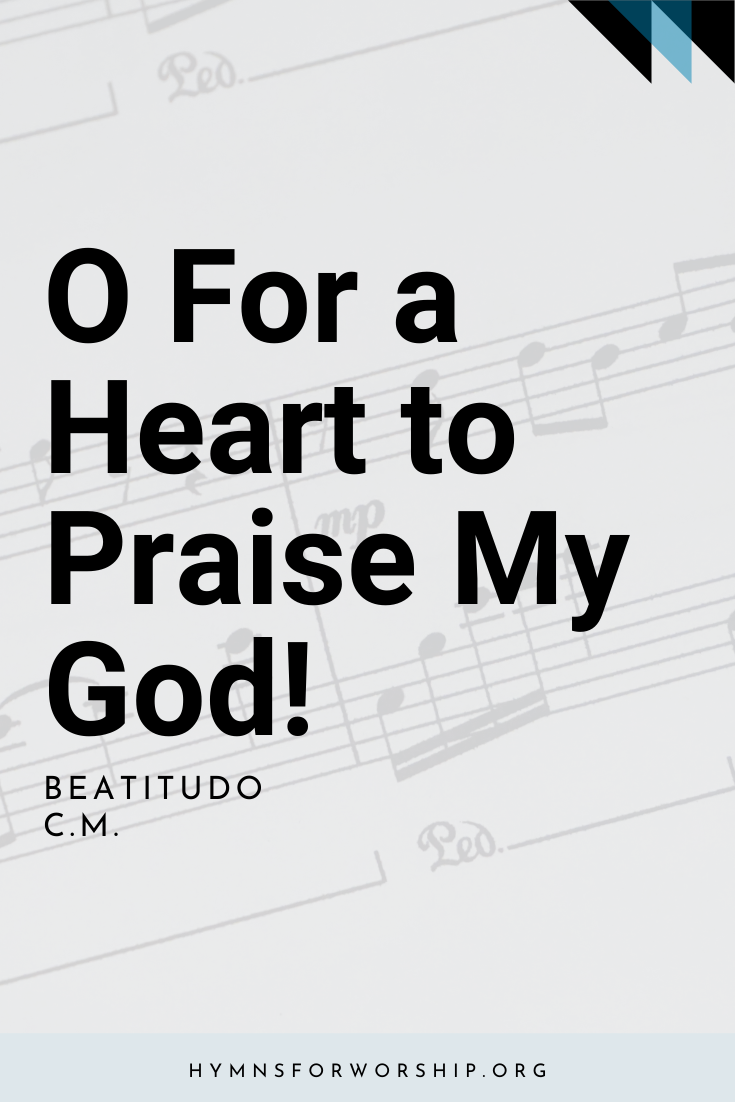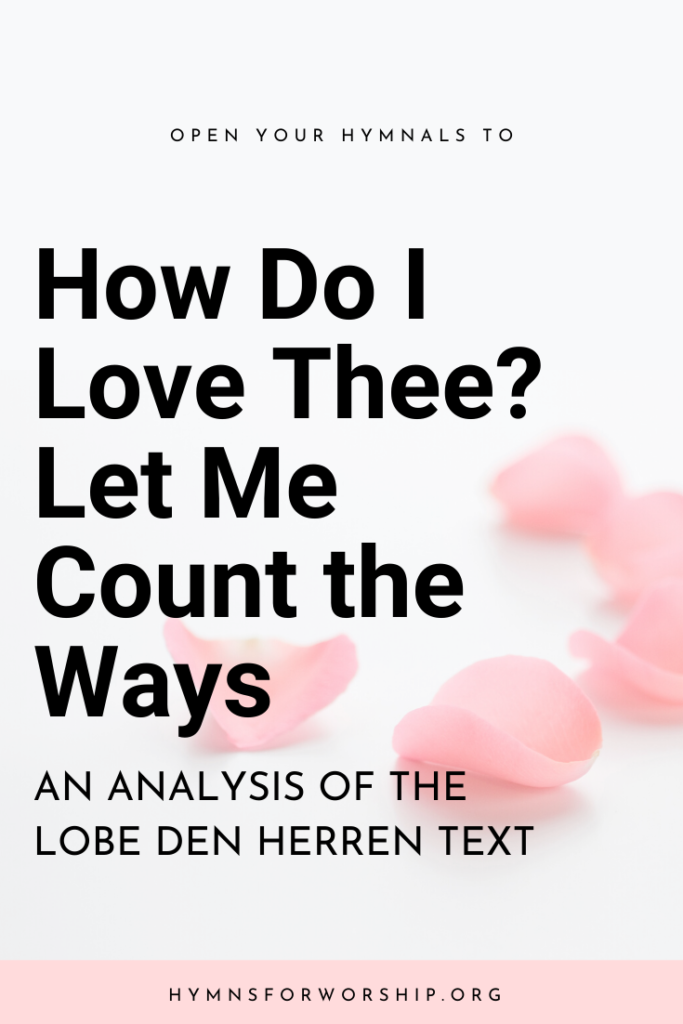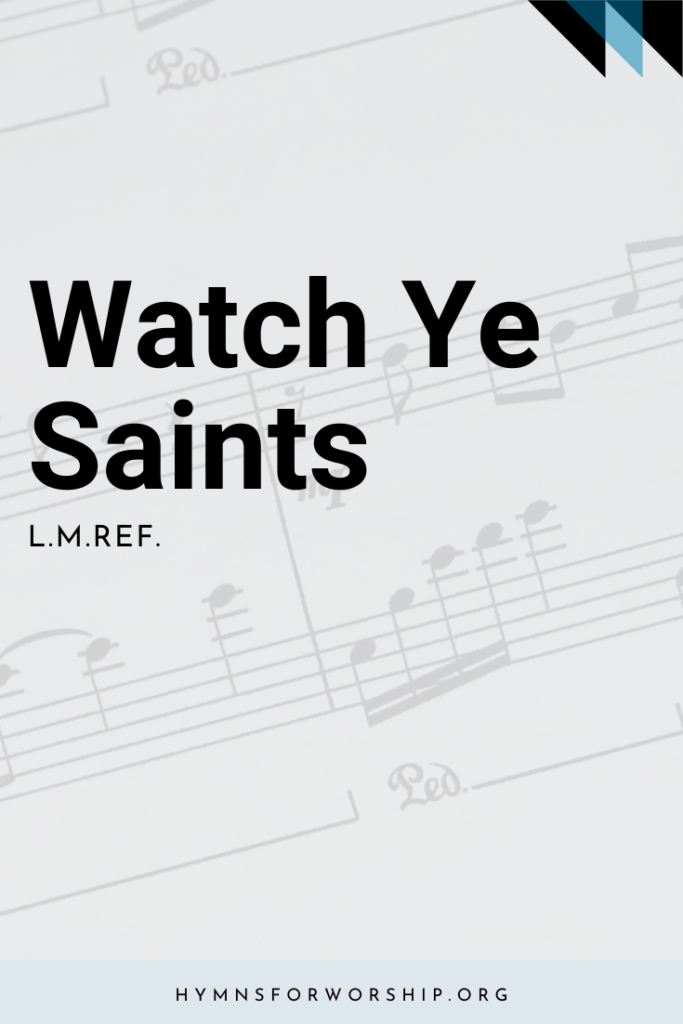GOSPEL >> Consecration
SDAH 323
O for a heart to praise my God,
A heart from sin set free,
A heart that always feels Thy blood
So freely shed for me.
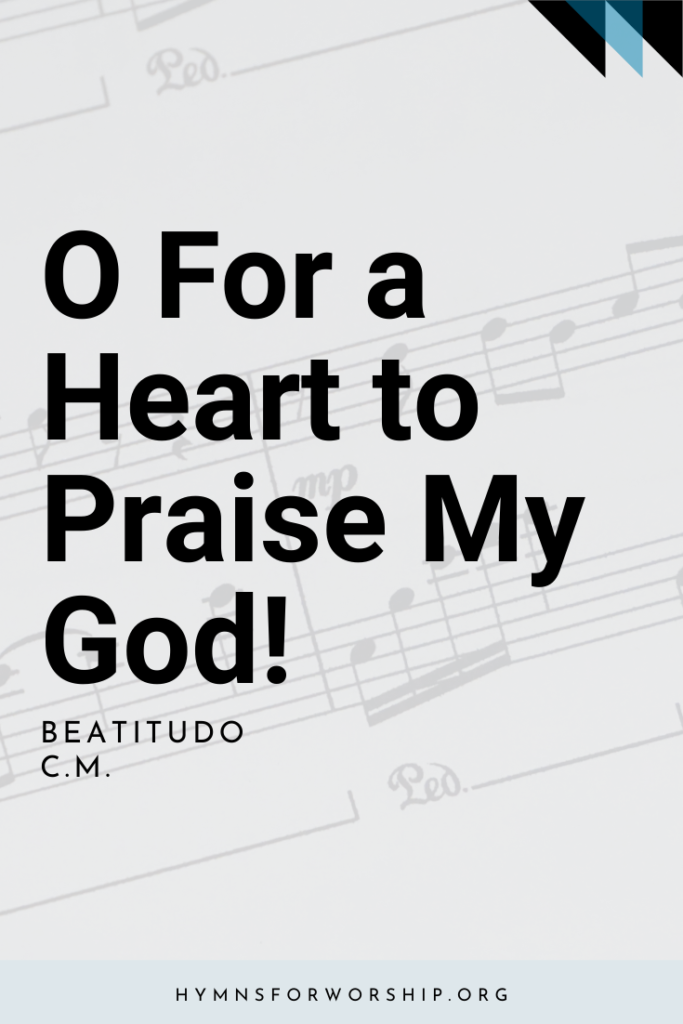

Text
1
O for a heart to praise my God,
A heart from sin set free,
A heart that always feels Thy blood
So freely shed for me.
2
A heart resigned, submissive, meek,
My dear Redeemer’s throne,
Where only Christ is heard to speak,
Where Jesus reigns alone.
3
A heart in every thought renewed
And full of love divine,
Perfect and right and pure and good,
A copy, Lord, of Thine.
4
Thy nature, gracious Lord, impart;
Come quickly from above;
Write Thy new name upon my heart,
Thy new, best name of Love.

Hymn Info
Biblical Reference
(a) Ps 51:10 (b) Prov 23:26 (d) Rev 3:12
Author
Charles Wesley (1707-1788)
Year Published
1742
Hymn Tune
BEATITUDO
Metrical Number
C.M.
Composer
John B. Dykes (1823-1876)
Year Composed
1875
Theme
CONSECRATION
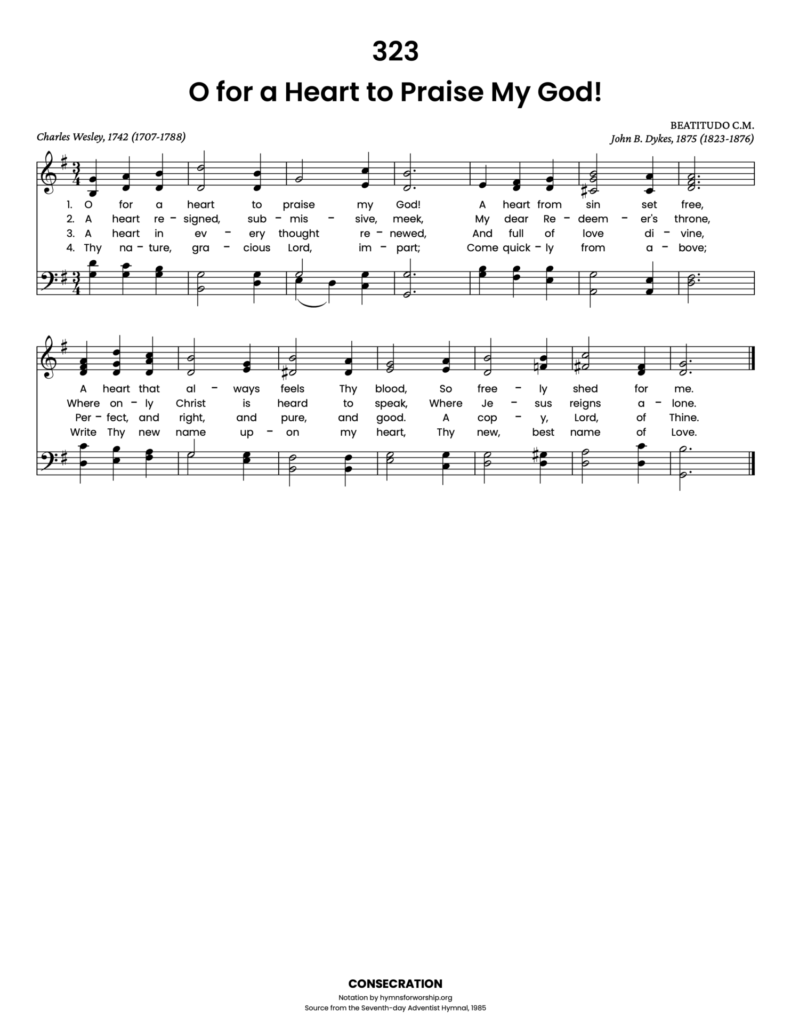
Get the hymn sheet in other keys here
Recommended Reading
Charles was the other Wesley. Alongside his brother John who was considered the main guy behind the founding of Methodism, it was Charles’ hymns that pushed through the envelope of being “just another religion.” His lasting and well-known hymns have captivated Christians all around the world. Through his poetic lines, we are able to sing many hymns with such deep theology.
It was said that he wrote 8,989 hymns. That’s 10 lines of poetry every single day for 50 years. And we are privileged to have sung some of those hymns. Tell me, don’t these hymns ring a bell for you?
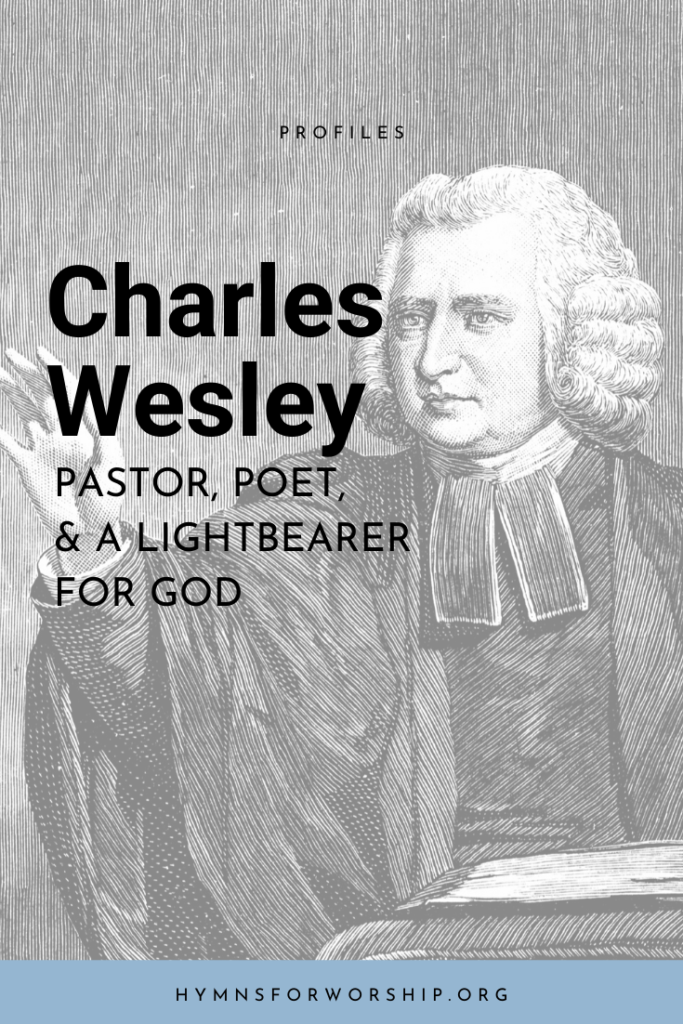
Notes
Make each hymn more meaningful with these helpful tools: Short, ready-to-use hymn introductions for church bulletins, multiple ways to introduce a hymn based on your worship theme and in-depth history and insights to enrich your song service.

